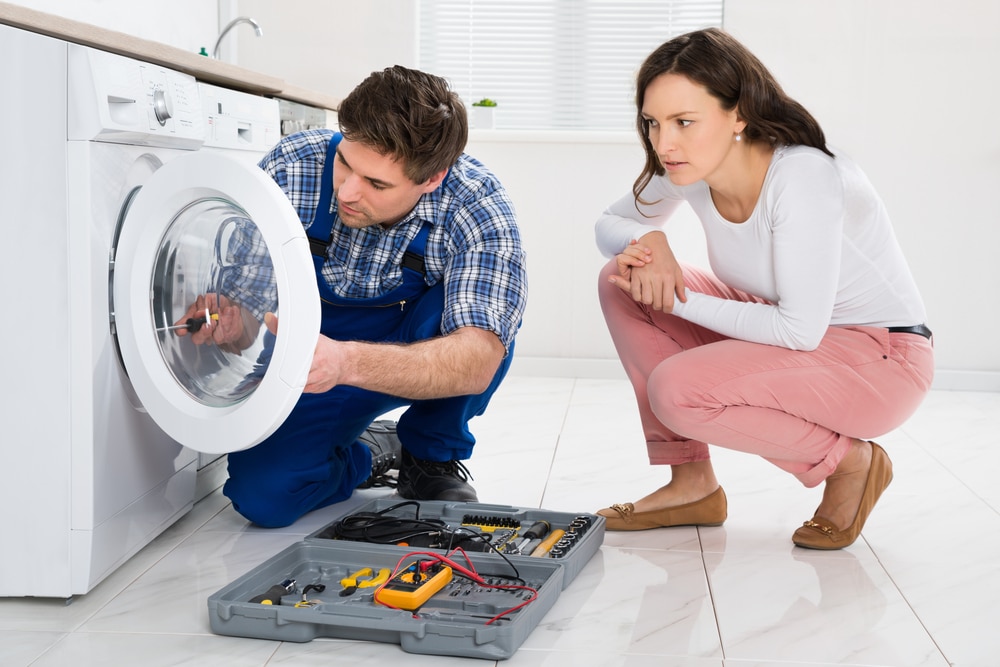
How Long Should Washing Machines Last?
A washing machine is a significant investment for any household, and knowing how long it should last can help you plan for repairs, maintenance, and eventual replacement. While various factors can influence the lifespan of a washing machine, including brand, usage, and maintenance, there are general guidelines that can help you understand what to expect. Here’s a comprehensive guide on how long washing machines typically last and what you can do to extend their lifespan.
Average Lifespan of a Washing Machine
On average, a washing machine should last between 5 to 10 years. However, this can vary based on several factors:
- Brand and Model: High-quality brands and models tend to last longer due to better build quality and components. For example, premium brands like Miele or Bosch may have a longer lifespan compared to more budget-friendly options.
- Usage: How often you use your washing machine significantly impacts its lifespan. A machine used for multiple loads daily will likely wear out faster than one used a few times a week.
- Maintenance: Regular maintenance, such as cleaning the drum, filter, and seals, as well as checking hoses for leaks, can extend the life of your washing machine.
Factors That Affect Washing Machine Longevity
- Frequency of Use
- Heavy Use: Machines that run several loads per day, especially in larger households, tend to wear out more quickly.
- Moderate Use: Washing machines used less frequently, such as in smaller households, generally last longer.
- Type of Washing Machine
- Front-Loading Machines: Typically, front-loading washing machines have a longer lifespan due to their design and efficiency. They are also generally more expensive to repair.
- Top-Loading Machines: These machines tend to have a shorter lifespan compared to front-loaders but are often less expensive to repair.
- Quality of Parts
- High-Quality Components: Machines with higher quality components, such as stainless steel drums and durable motors, tend to last longer.
- Budget Models: Lower-end models may have more plastic parts, which can wear out faster.
- Maintenance Practices
- Regular Cleaning: Keeping the drum, detergent drawer, and filter clean prevents the build-up of mould, mildew, and detergent residue, which can cause wear and tear over time.
- Timely Repairs: Addressing minor issues promptly can prevent them from developing into major problems that could shorten the machine’s lifespan.
Signs That Your Washing Machine May Be Nearing the End of Its Life
Even with regular maintenance, washing machines will eventually show signs of aging. Here are some indicators that your washing machine may need to be replaced soon:
- Frequent Breakdowns: If you find yourself frequently calling a technician for repairs, it might be more cost-effective to replace the machine.
- Unusual Noises: Loud banging, grinding, or squealing noises can indicate worn bearings, a faulty motor, or other serious issues.
- Leaks: Persistent leaks can be a sign of deteriorating seals or hoses, which might be expensive to replace.
- Inefficient Cleaning: If your clothes aren’t coming out as clean as they used to, it could be a sign that the machine is no longer working efficiently.
- Vibrations and Shaking: Excessive vibrations or shaking, even on balanced loads, could indicate that the internal components are wearing out.
Tips to Extend the Lifespan of Your Washing Machine
- Balance Loads Properly: Always ensure that your washing machine is loaded correctly and that clothes are evenly distributed to avoid excessive strain on the drum and motor.
- Use the Right Detergent: Always use the detergent recommended by the manufacturer, especially in high-efficiency (HE) machines. Using too much detergent can lead to residue build-up and damage.
- Avoid Overloading: Overloading the washing machine can strain the motor and other components, leading to premature wear.
- Check and Clean Filters Regularly: Clogged filters can cause the washing machine to work harder, reducing its lifespan.
- Inspect Hoses and Seals: Regularly check hoses and seals for signs of wear or leaks, and replace them as needed to prevent water damage.
When to Replace Your Washing Machine
If your washing machine is over 10 years old (with the exception of premium brands such as Miele) and requires frequent repairs, it might be time to consider a replacement. Newer models are more energy-efficient and come with advanced features that can save you money on utilities and provide better performance.
Our Top Picks
Having repaired thousands of washing machines over the years, here’s our top picks on what we think are the most reliable brands:
- Miele: Arguably the best brand when it comes to domestic washing machines. They’re tested to last an average of 25 years and that’s exactly what you should expect from one when it comes to life expectancy. Like most things, they will need TLC along the way.
- Bosch, Neff, Siemens: When Miele is not an option, the next best thing is a product from the BSH Group (Bosch, Neff and Siemens). Just like Miele, they’re German-engineered and are renowned for their reliability. You should expect to get somewhere around 12-16 years of life expectancy. Again, they’ll need some TLC along the way.
Conclusion
Washing machines are built to last anywhere from 10 to 15 years, depending on various factors such as usage, maintenance, and quality. By following good maintenance practices and addressing issues promptly, you can extend the lifespan of your washing machine. However, when your machine begins to show signs of significant wear or requires frequent repairs, it might be time to invest in a new one.

